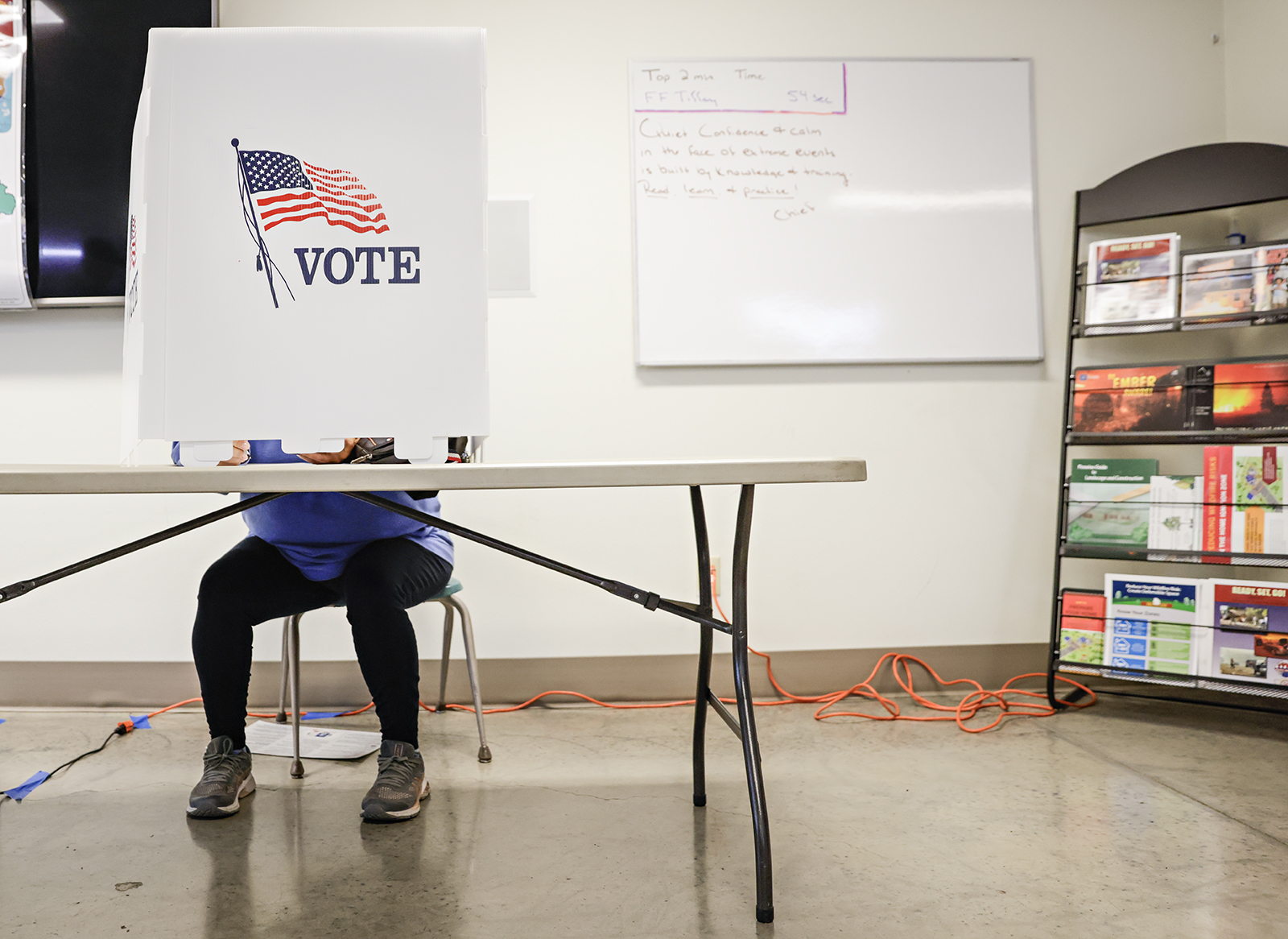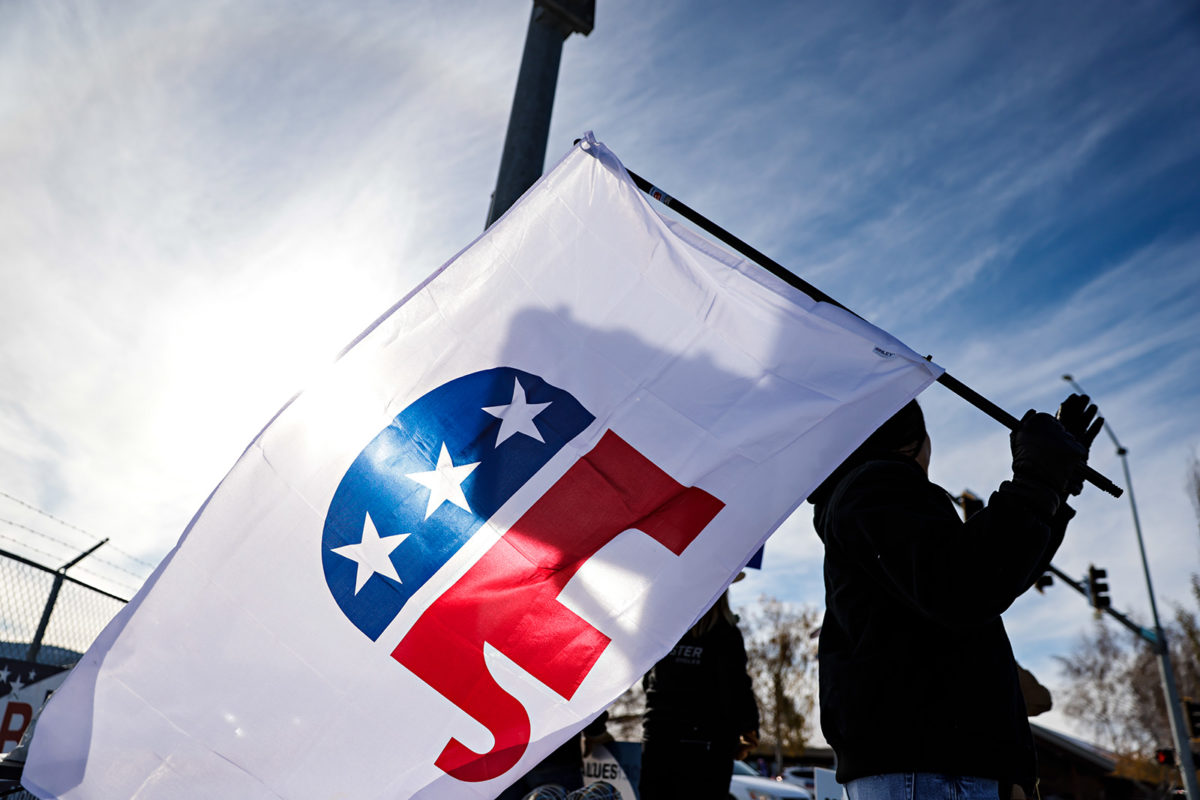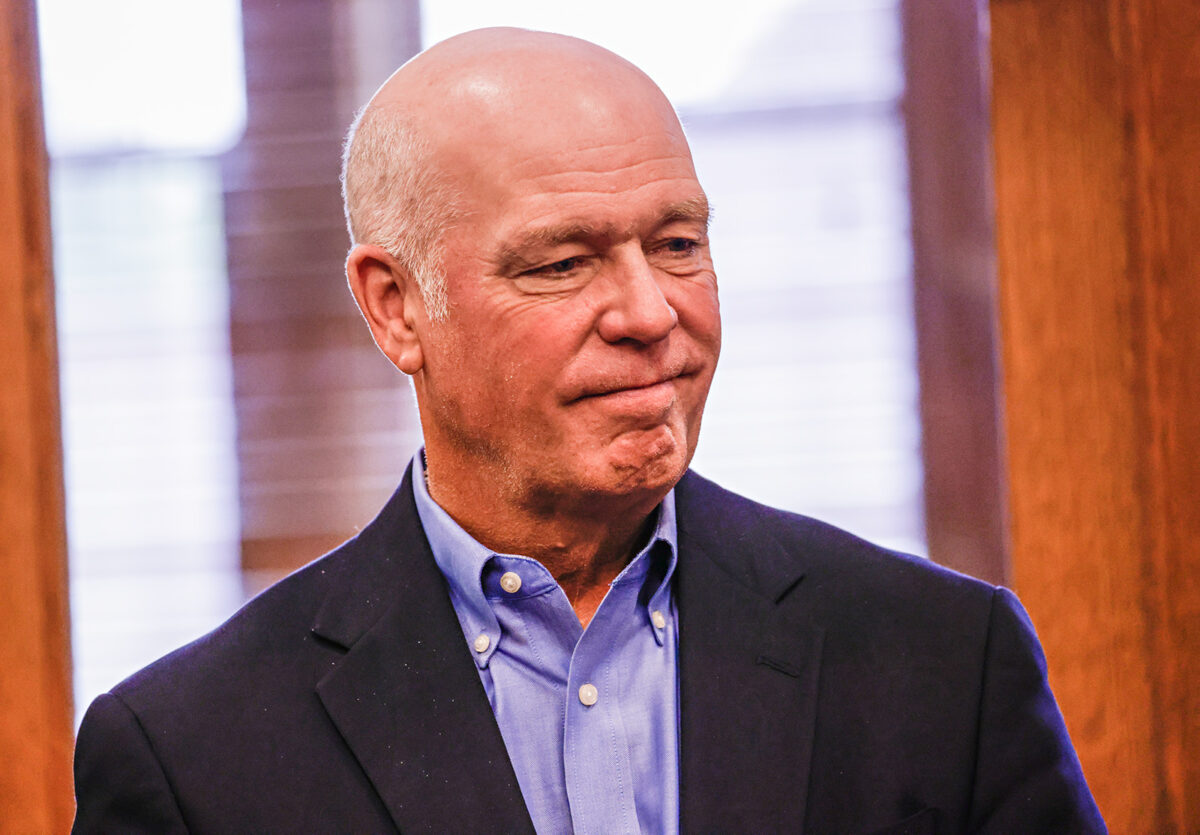Flathead Lawmakers Eye Legislative Priorities After Election
Republicans lost some ground in the state Legislature following recent redistricting, yet maintained a powerful majority that Flathead Valley lawmakers hope will shape tax, immigration, healthcare and education policy in 2025
By Denali Sagner
As Republicans head into 2025 with a smaller, yet still powerful, majority in the Montana Legislature, Flathead Valley lawmakers expressed optimism about the body’s ability to shape Montana’s most critical policy areas.
Following a decennial redistricting process that reshaped Montana’s legislative boundaries, Republicans will hold 59 of 100 state House seats and 32 of 50 state Senate seats in 2025, down from the historic supermajority the party held in 2023.
Republicans have criticized the new districts as “gerrymandered” after the state’s redistricting commission chair broke with Democrats on the new map. Democrats, however, say the map more accurately reflects Democrats’ vote share in the state, rather than splicing blue areas into red districts that would help the GOP overperform.
“We had a liberal redistricting commission, that was obvious,” Speaker of the Montana House Matt Regier, who was elected to serve in the Senate beginning in 2025, said. “They gerrymandered the districts, and we held our ground.”
Regier is one of three Republicans from the Flathead Valley elected to the state Senate on Tuesday. Joining him in Helena will be 11 Republican state House members from the Flathead and two holdover Republican senators, John Fuller and Mark Noland, who were not up for reelection this year.
“I’m excited about the Senate. I think we’ve got a great makeup,” Regier said.
The Flathead Valley will also, for the first time since 2019, send two Democrats to Helena. Longtime state Rep. Dave Fern will switch over to the Senate, and retired educator Debo Powers will head to the House.
Fern told the Beacon on Wednesday, “The Dems did pretty well in the Montana House and we’re seeing a working coalition coming together in the Senate. You could attribute that to a couple of things: redistricting and spreading out that concentration of Democrats a little bit, and then hard work by the candidates. But overall, this is a very Republican, fairly conservative area with streaks of libertarian viewpoints.”
Lawmakers will be tasked with navigating a complex set of policy conundrums, starting with property taxes, which have risen exponentially in recent years and become a central talking point for candidates this election cycle, especially Democrats, who blamed the tax increases on the Republican Legislature and Gov. Greg Gianforte.
The median residential property owner in Montana saw a 21% increase in their property taxes in 2023, per an analysis by the Montana Free Press. The tax hikes followed Montana’s first property appraisal cycle after the state experienced explosive growth during and after the Covid-19 pandemic, which drove up housing values, especially in booming areas like the Flathead and Gallatin valleys.
Republican state Rep. Courtenay Sprunger, who was reelected on Tuesday after fending off an ultra-conservative primary challenger in June, said lawmakers are considering a number of proposals to bring down property taxes.
One such proposal is a reconfiguration of the state’s school funding formula.
Currently, each school district in Montana sets the rate at which it taxes local property owners to fill its base budget — a complex calculation that is determined by the taxable value of the district, the number of taxpayers within it and the budgetary needs of the school district. Under this system, there are hundreds of different school mill rates in Montana, creating a tax structure that education experts say is “near impossible” to understand. The formula favors small school districts in tax-base wealthy areas, such as resort destinations and natural resource hubs, while leaving lower income areas to shoulder a higher tax burden.
To address the inequities between communities and balance the load on taxpayers, education advocates have pushed the state to adopt county-wide equalized mills, which they say will lower taxes for most Montanans.
Sprunger said reconfiguring mill rates is one way to maintain adequate funding for public education while protecting Flathead Valley residents “against continuing increases” on their tax bill.

The lawmaker anticipates the Legislature will consider a homestead exemption, which would allow tax deductions for individuals who have their primary residence in Montana. There have also been discussions, Sprunger said, about creating a separate tax code for second and vacation homeowners. Lawmakers may also impose a “reasonable cap on local government spending,” Sprunger said, calling rising taxes “an unworkable burden for the people of Montana.”
Lawmakers will also be tasked with deciding whether or not to renew Medicaid expansion, which was last authorized by the state Legislature in 2019 and is set to sunset in 2025.
Under the program, which was implemented through the Affordable Care Act, individuals at 138% of the federal poverty level or below are eligible to enroll in Medicaid. The coverage is funded largely by the federal government but administered at the state level. If Medicaid expansion lapses, more than 85,000 Montanans could lose health insurance.
Regier said “there’s obviously a sentiment” for the program not to be renewed, adding that lawmakers included the sunset clause into the 2019 bill so they could “scrutinize the program again.”
Gianforte has offered mixed messages on his support for Medicaid expansion, saying that while the state needs to offer a safety net, individuals should be required to work to receive coverage. Conservative think tanks have seized on the opportunity to push against the program, calling it bloated and burdensome.
Fern, the Democrat from Whitefish, has expressed strong support for reauthorizing Medicaid expansion, saying it keeps rural healthcare systems afloat while helping working Montanans.

Flathead Valley Republicans have a long list of policy goals, including introducing penalties for undocumented immigrants in Montana, increasing funding for law enforcement, curbing the power of the judiciary and exempting seniors’ social security checks from taxes.
Talking to the Beacon after the election, incoming freshman lawmaker Lukas Schubert said his main priorities will be “dealing with immigration” and doing away with Montana’s nonpartisan judicial races, which he said are “insanely corrupt” and should be partisan like legislative elections.
As a retired law enforcement officer, newly elected lawmaker Steve Kelly said he has an “intimate understanding of the criminal justice system.” Kelly hopes to increase support for law enforcement, including improving state investigations and increasing jail capacity.
While the Legislature passed a number of abortion restrictions in 2023, its powers to restrict the procedure will be limited by the passage of CI-128, a constitutional initiative that protects access to abortion in Montana.
“It definitely changed our ability to protect the unborn,” Regier, who has been the architect of multiple anti-abortion laws, said.

Though Republicans maintain a definitive majority in Helena, they will have to navigate divisions within their diverse party, which swings from moderate Solutions Caucus legislators to hardline members of the Freedom Caucus.
Some of the state’s most critical policy decisions, including the 2019 expansion of Medicaid, passed with slim margins, when some Republicans joined with Democrats to get the bill over the finish line.
Sprunger, who became known in 2023 for her bipartisan work, said she will “work with anybody to ensure that people can get where they need to go safely and efficiently,” adding that Republicans are “going to have a conservative mindset” and “need to consider all Montanans.”